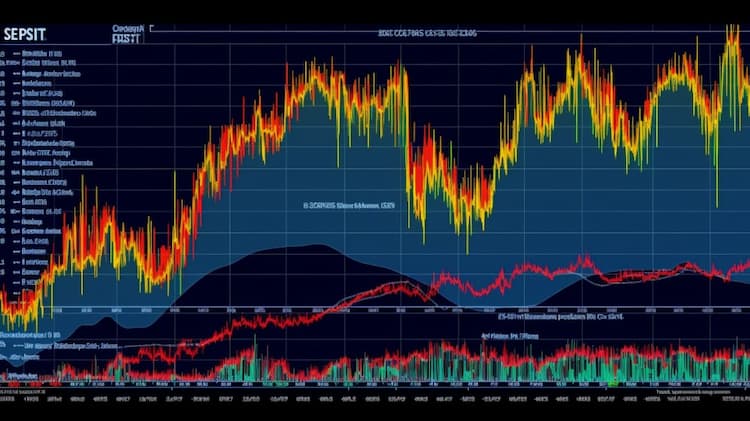
What is the IYF ETF?
The IYF ETF, or the iShares U.S. Financials ETF, is an exchange-traded fund that focuses on providing investors with exposure to the financial sector. ETFs have gained popularity among investors due to their diversification benefits and ease of trading. In this article, we will explore the IYF ETF and shed light on its purpose, composition, and potential benefits for investors. By understanding what the IYF ETF represents and how it operates, investors can assess whether it aligns with their investment objectives and consider incorporating it into their portfolios.
Understanding ETFs and the IYF
In recent years, Exchange-Traded Funds (ETFs) have become increasingly popular among investors, thanks to their unique characteristics and numerous benefits. One such ETF is the iShares U.S. Financials ETF (IYF), which focuses on the financial sector. By investing in IYF, individuals gain exposure to a diversified portfolio of financial companies, including banks, insurance firms, and other financial institutions. The primary objective of the IYF ETF is to track the performance of the Dow Jones U.S. Financials Index, providing investors with a convenient and efficient way to access the financial sector as a whole.
If you're interested in learning more about ETFs and their advantages, reputable financial websites like Investopedia and ETF.com can provide comprehensive information. These sources offer insights into the structure, benefits, and risks associated with ETFs.
The Mechanics of the IYF ETF
The IYF ETF operates using a passive investment strategy known as index replication. This strategy aims to replicate the performance of the Dow Jones U.S. Financials Index, which consists of large and mid-sized financial companies in the United States. By investing in the IYF ETF, individuals indirectly own a proportionate share of the underlying stocks within the index.
The IYF ETF offers several advantages to investors, including diversification, liquidity, and cost-efficiency. Through a single ETF, investors gain exposure to a broad range of financial companies, reducing the risk associated with investing in individual stocks. Additionally, ETFs like IYF are traded on major stock exchanges, providing investors with easy access to buying and selling shares throughout the trading day. Furthermore, ETFs generally have lower expense ratios compared to actively managed funds, making them cost-effective investment options.
 IYF overlap What Is the IYF ETF?
IYF overlap What Is the IYF ETF?
Potential Risks and Considerations
While the IYF ETF offers various advantages, it is crucial to consider the potential risks associated with any financial instrument. The value of the IYF ETF is influenced by factors such as the overall performance of the financial sector, interest rates, economic conditions, and regulatory changes. If the financial sector experiences a downturn or faces challenges, the value of the IYF ETF may decline.
Furthermore, investors should be aware that ETFs, including the IYF, are subject to market volatility and fluctuations. The price of an ETF can change throughout the trading day and may not always perfectly track the performance of the underlying index. Additionally, investors should carefully review the expense ratios, management fees, and other costs associated with investing in the IYF ETF.
To gain a better understanding of the potential risks and considerations related to investing in ETFs, exploring the educational resources and prospectus on the official website of iShares can be helpful.Additionally, the U.S. Securities and Exchange Commission (SEC) provides valuable information about ETFs and their associated risks on their website.
Investing in the IYF ETF
Investing in the IYF ETF is relatively straightforward and can be done through a brokerage account. Investors can buy and sell shares of the IYF ETF on major stock exchanges, similar to trading individual stocks. It is important to conduct thorough research, consider your investment goals and risk tolerance, and consult with a financial advisor, if necessary, before making any investment decisions.
Please note that investment decisions should be made based on personal circumstances and with careful consideration of one's financial goals and risk tolerance.
Source 1:IYF issuer website
Source 2: Reuters article about IYF
IYF quote and analysis
Discover the top holdings, correlations, and overlaps of ETFs using our visualization tool.
Our app allows you to build and track your portfolio.
To learn more about the IYF iShares U.S. Financials ETF, access our dedicated page now.
FAQ
What is the IYF ETF?
The IYF ETF, or iShares U.S. Financials ETF, is an exchange-traded fund that provides investors with exposure to the U.S. financial sector.
What is the underlying index that the IYF ETF aims to track?
The IYF ETF aims to track the performance of the Dow Jones U.S. Financials Index, which represents the performance of the financial sector in the U.S.
What types of companies are included in the IYF ETF?
The IYF ETF includes a diverse range of companies within the U.S. financial sector, such as banks, insurance companies, asset management firms, real estate investment trusts (REITs), and more.
How does the IYF ETF work?
The IYF ETF works by pooling investors' funds to purchase a portfolio of securities that mirrors the performance of the underlying index, allowing investors to gain exposure to a broad range of U.S. financial companies.
What are the advantages of investing in the IYF ETF?
Investing in the IYF ETF offers investors diversification across the U.S. financial sector, potential long-term growth opportunities, convenience, and the ability to access a specific industry without investing in individual stocks.





